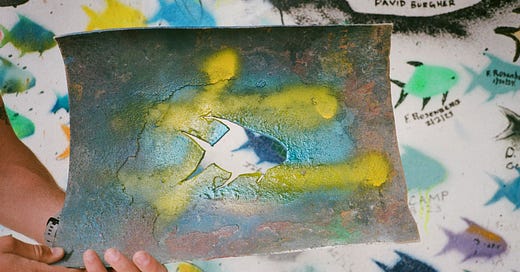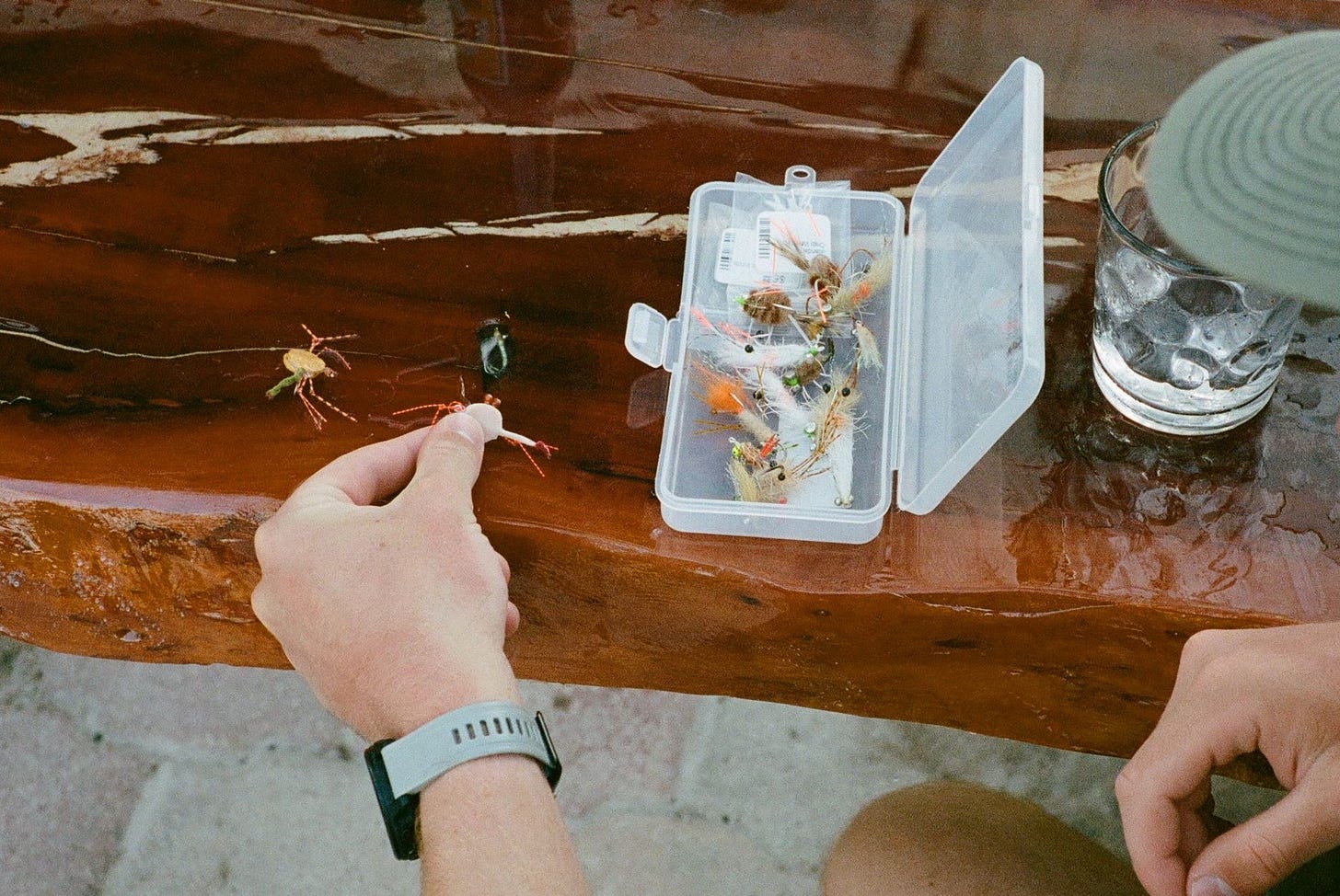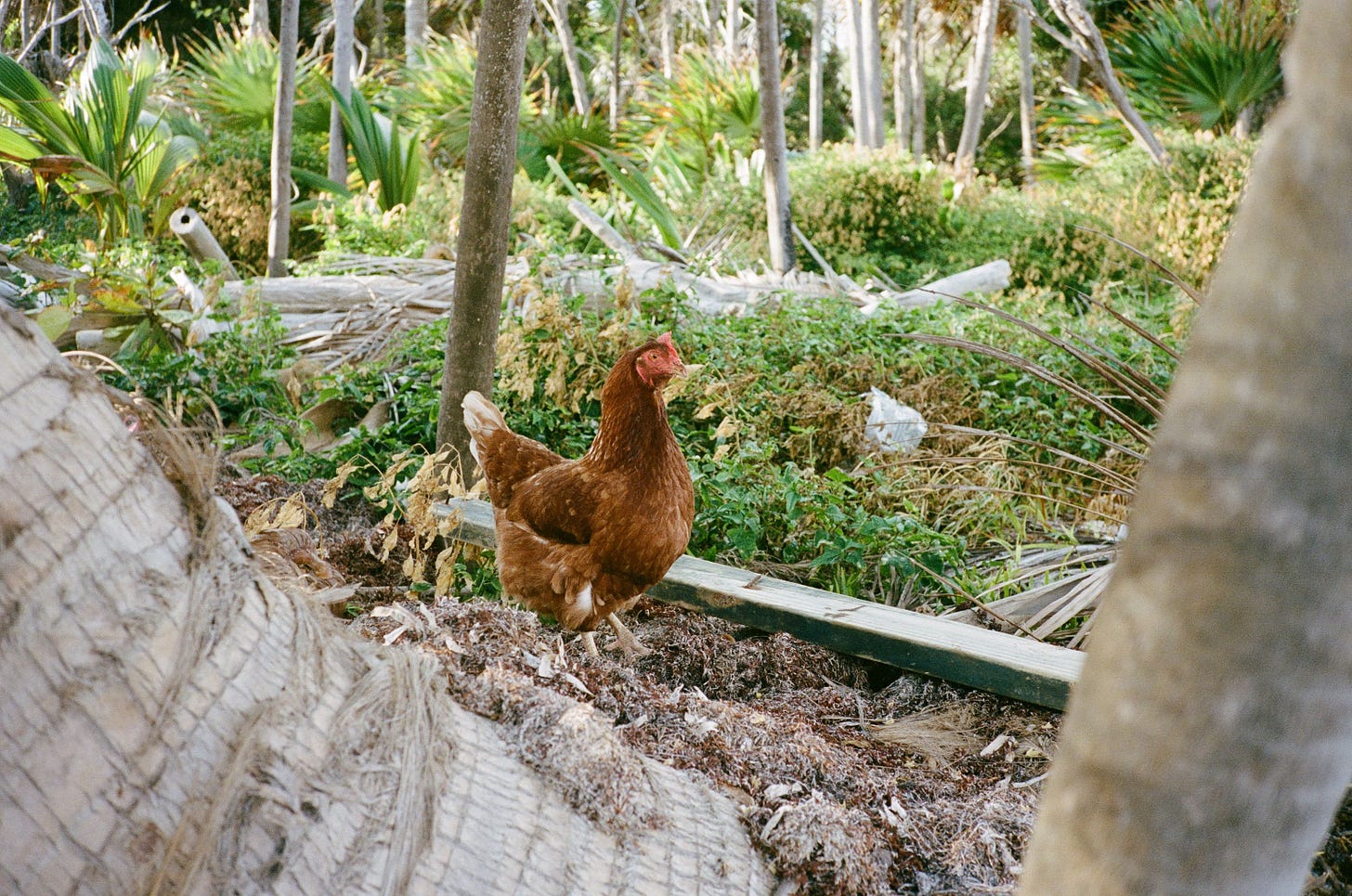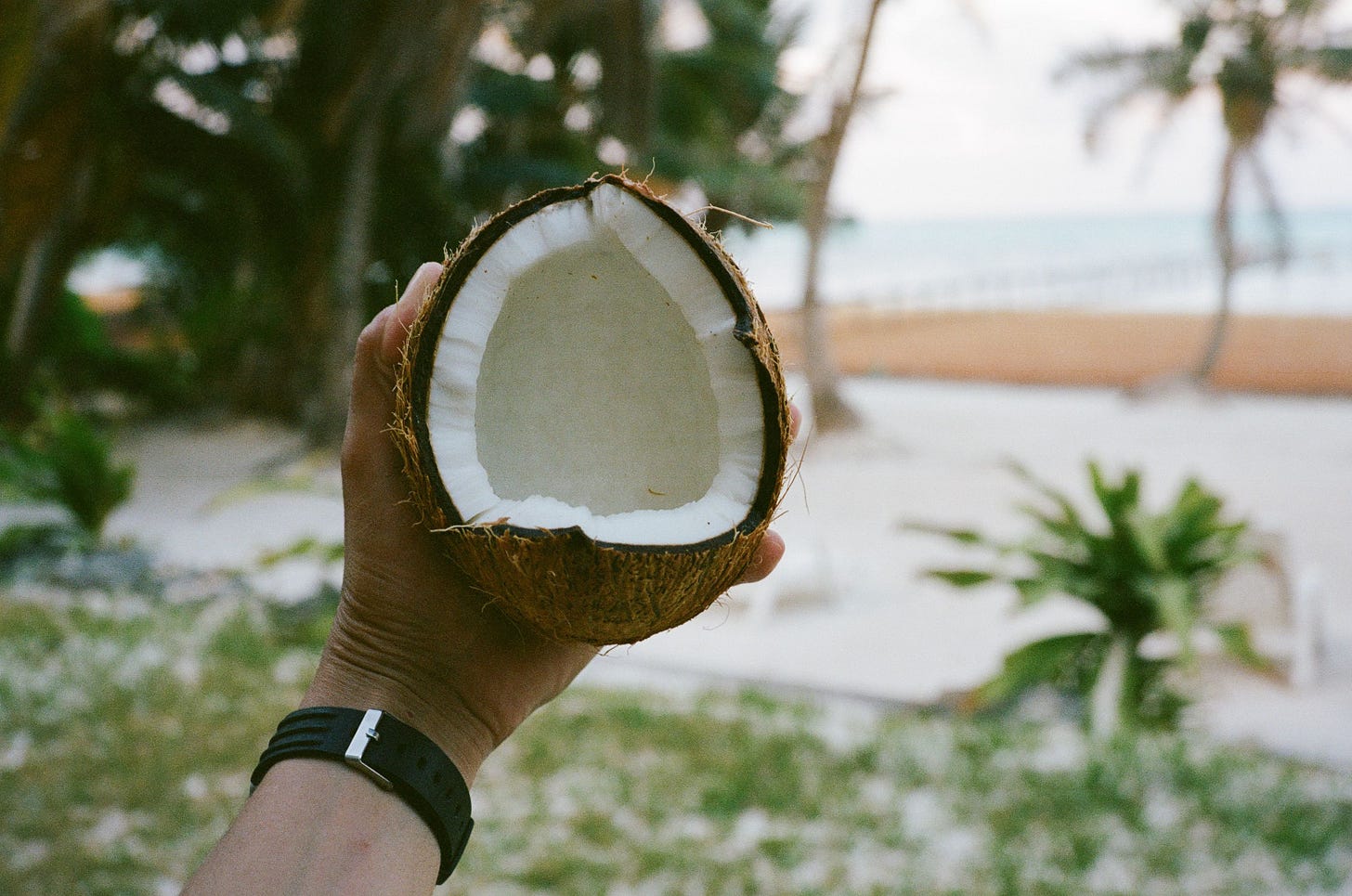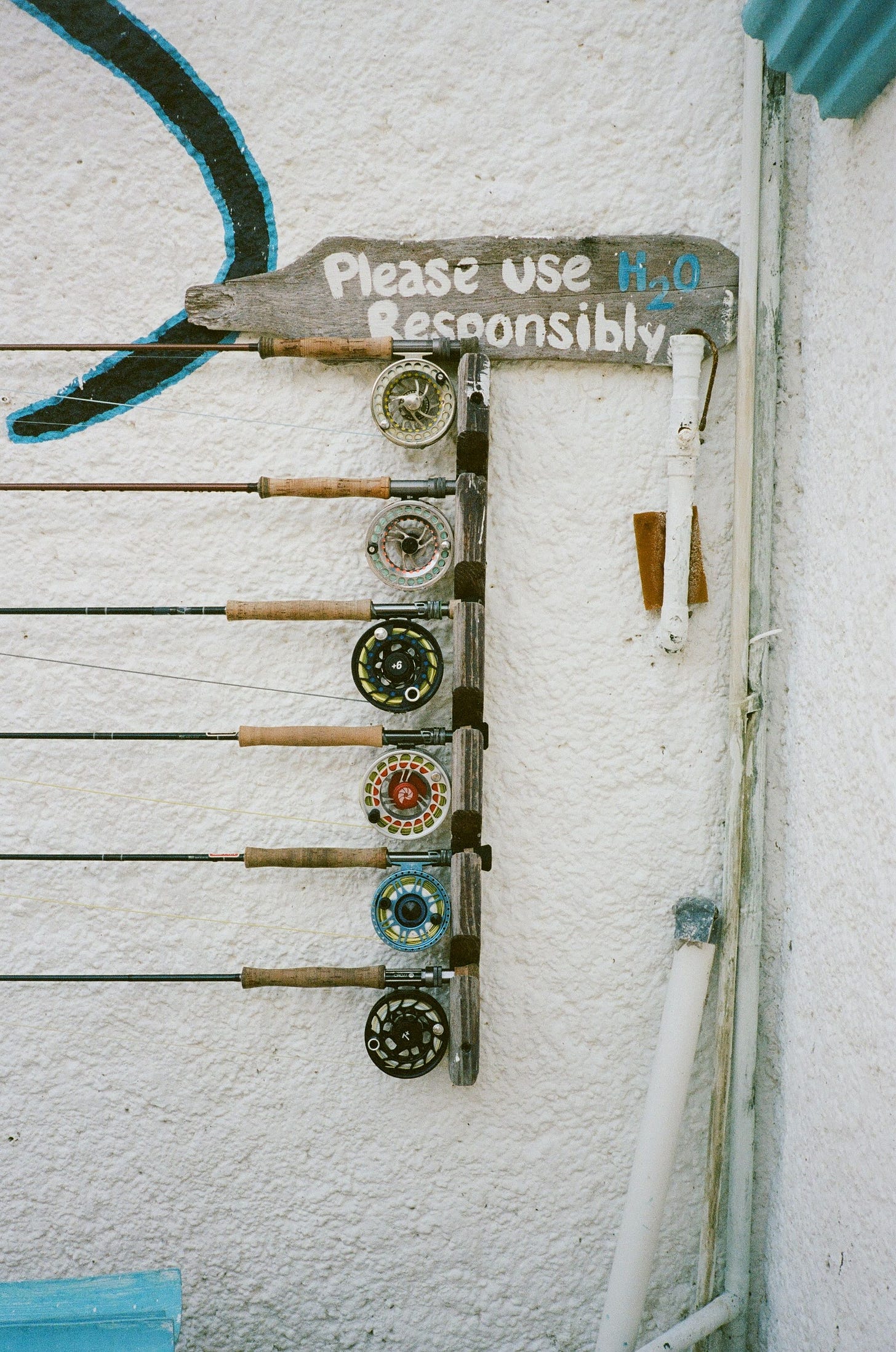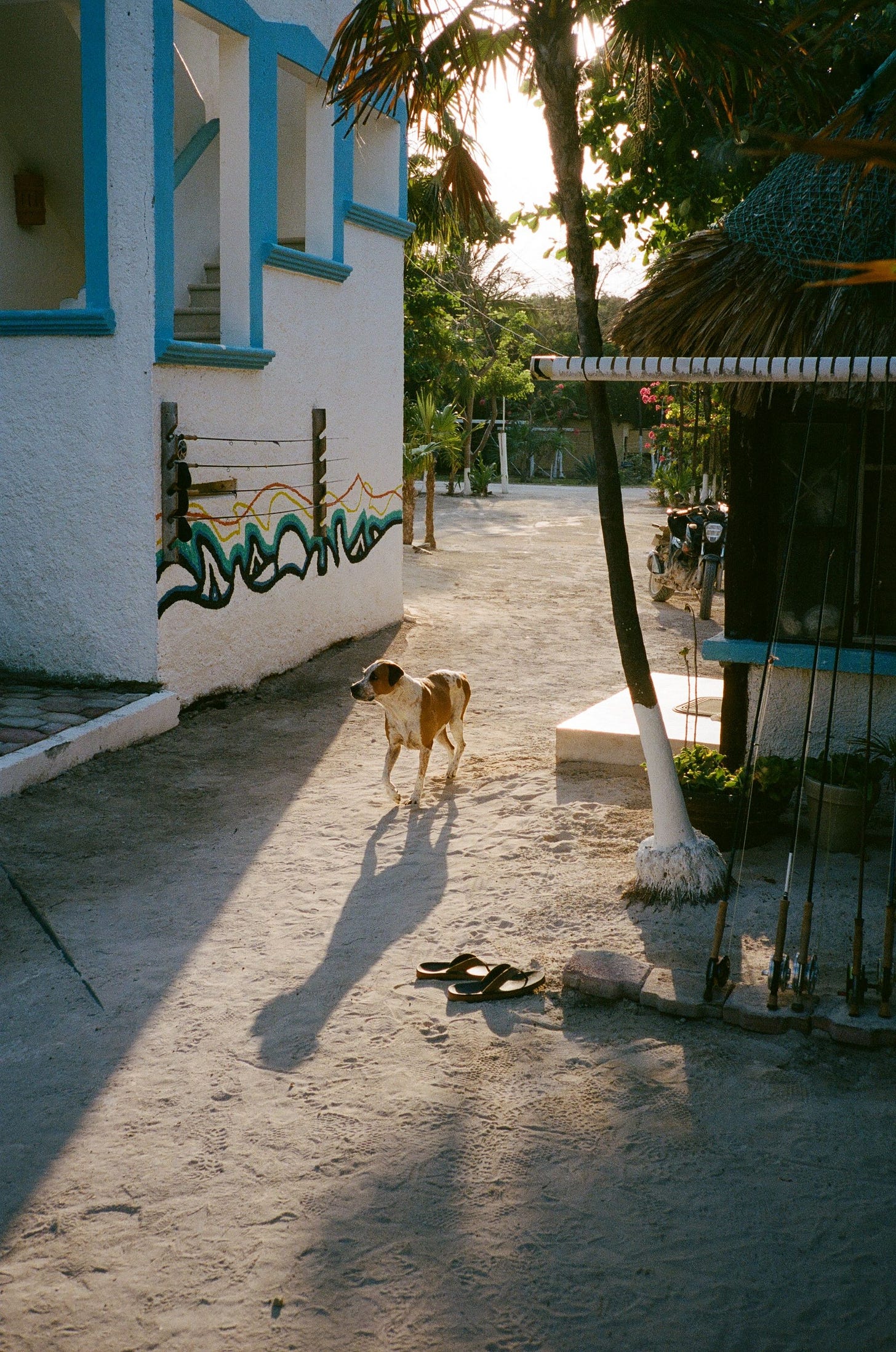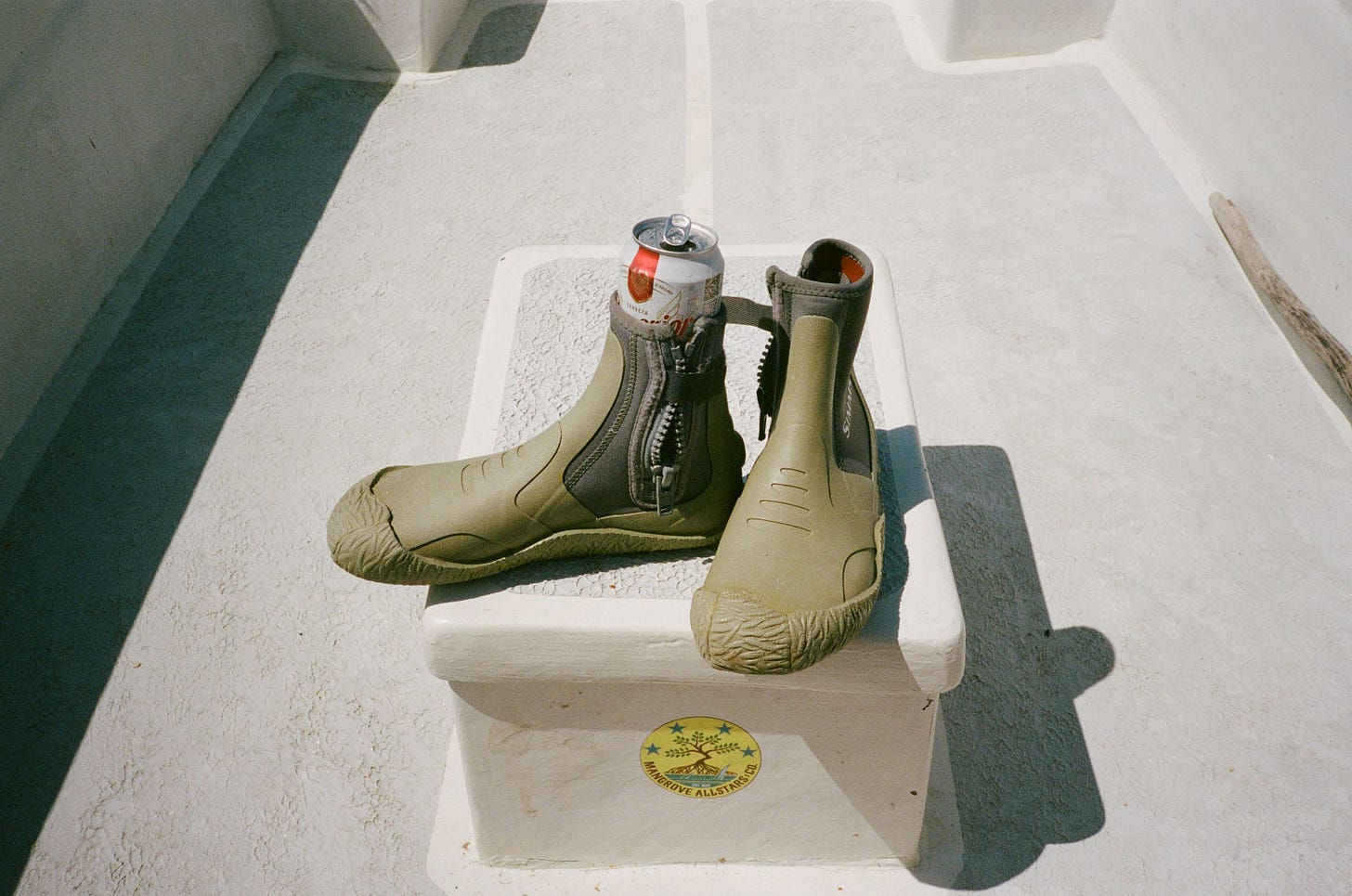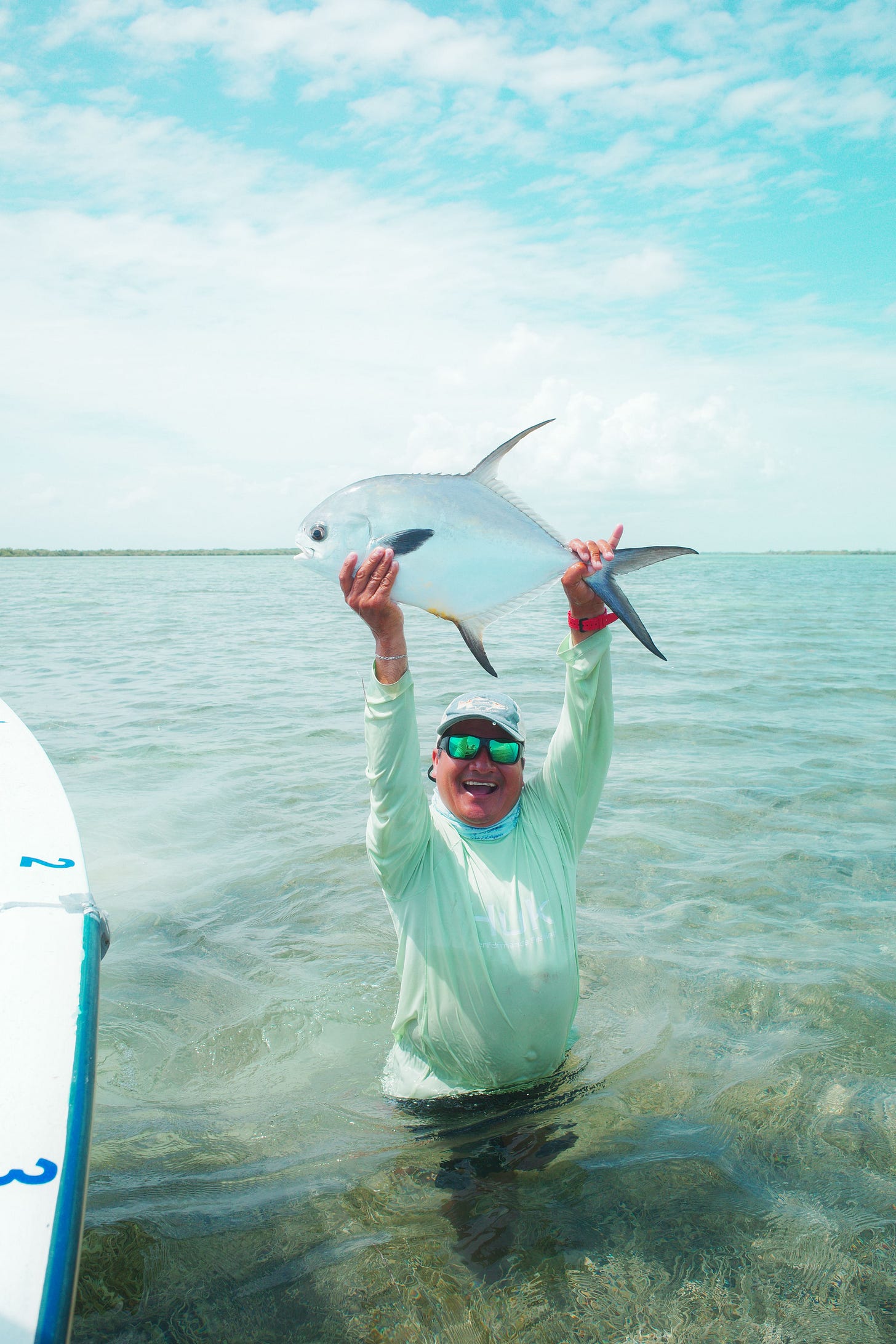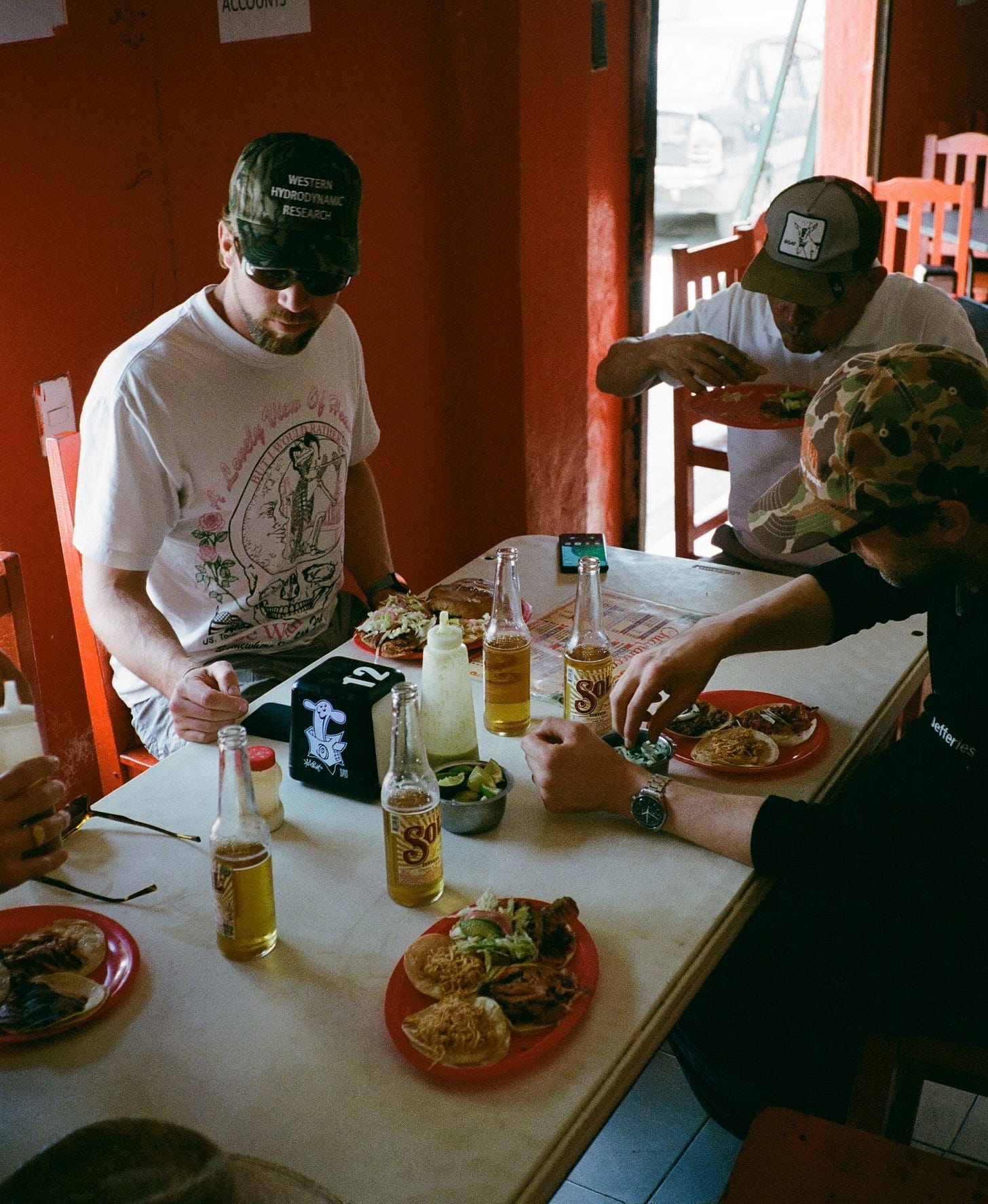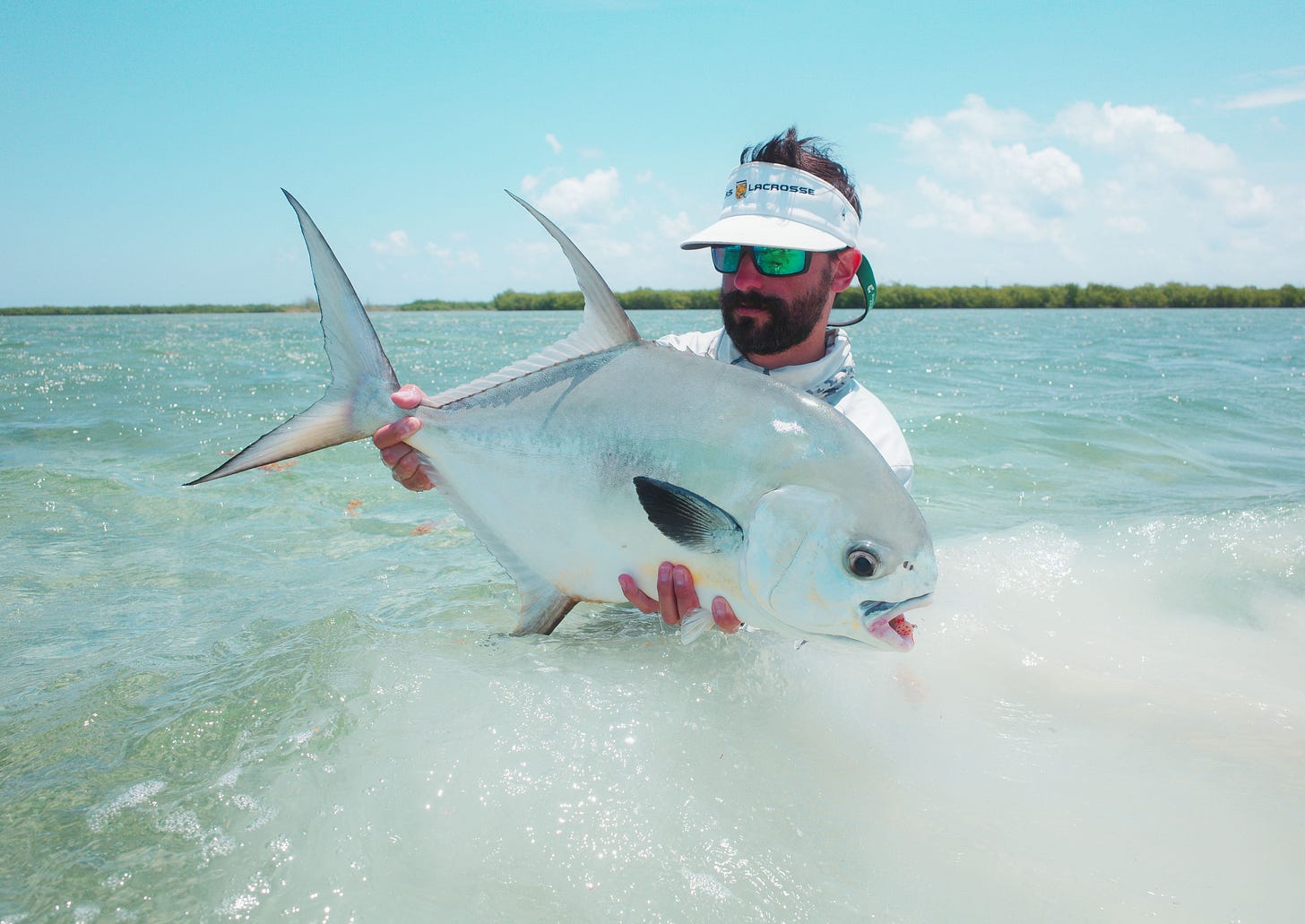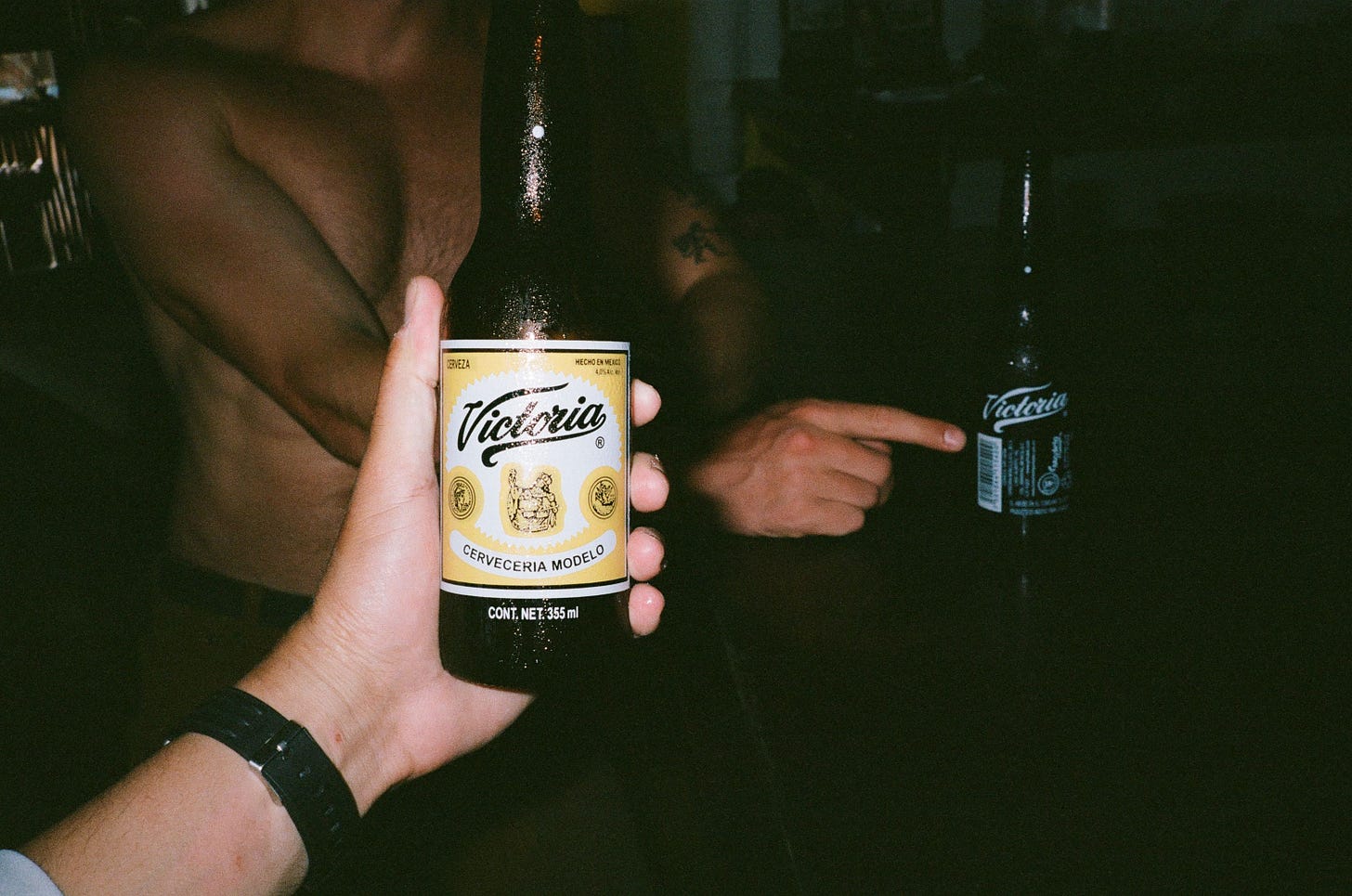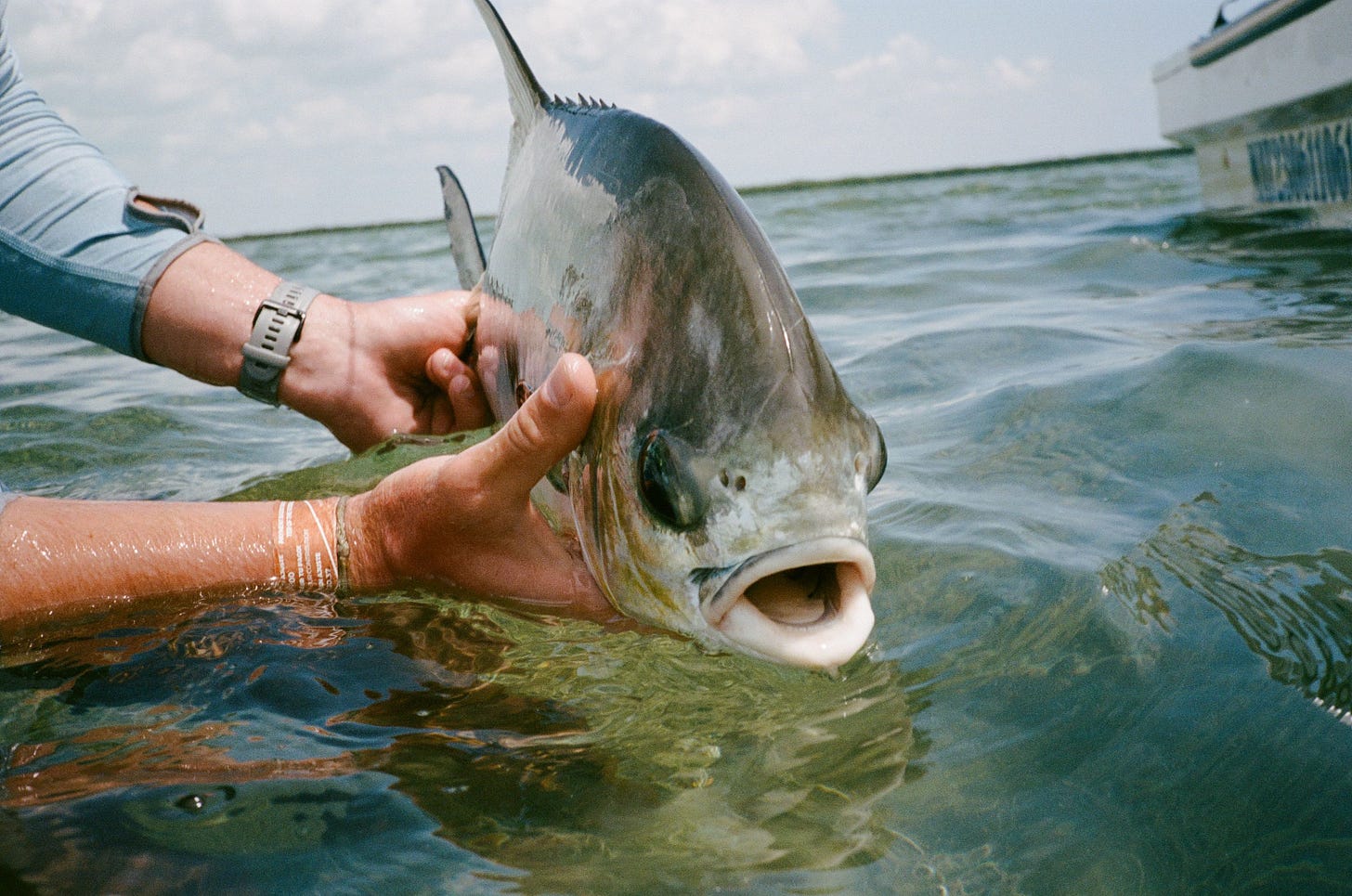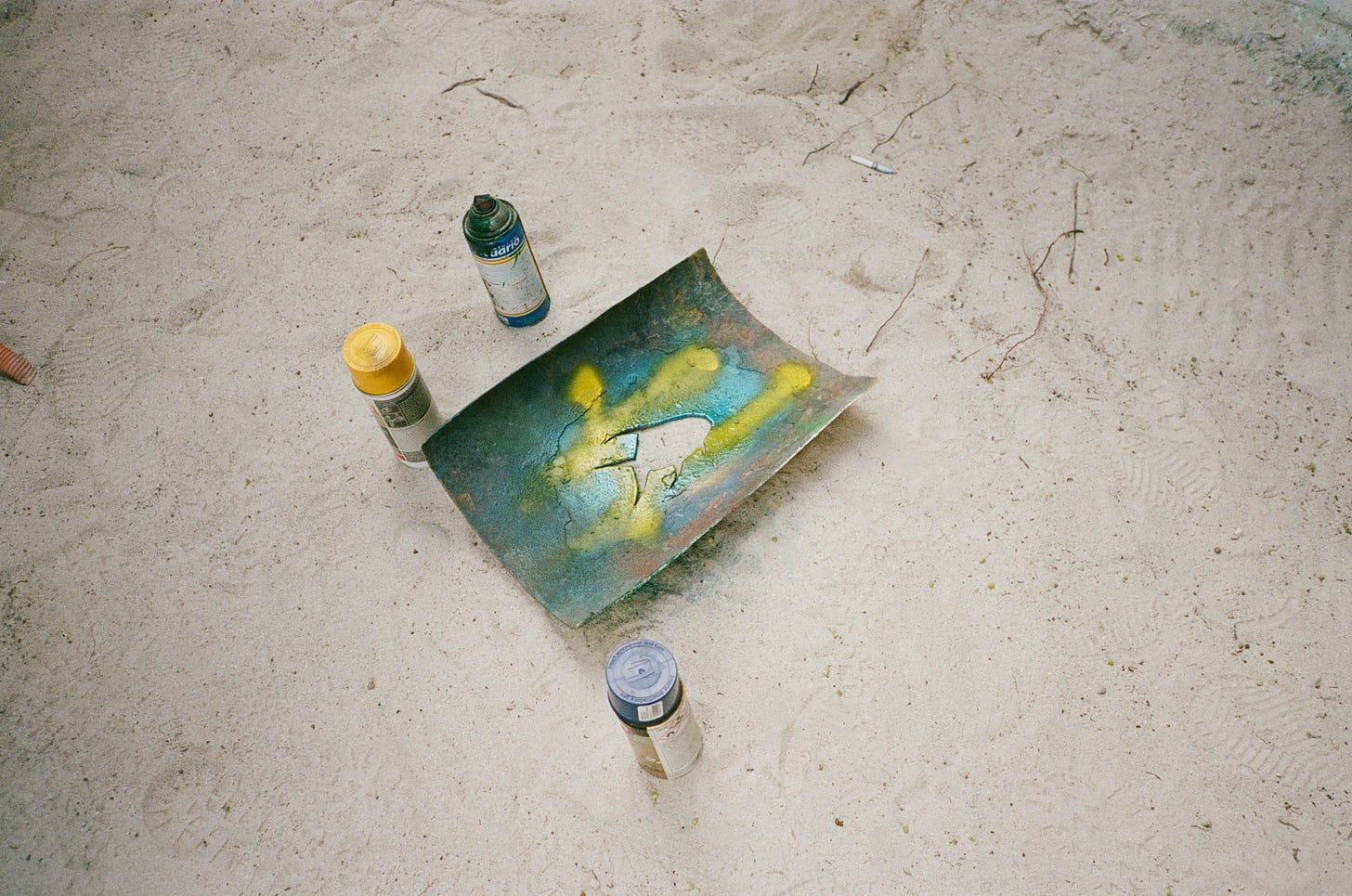As I write this, I still feel like I am rocking back and forth on the bow of a panga. After a full week of 8-hour days of standing on one while looking for fish, I’m starting to understand how and why the few people who live full time on the atoll of Banco Chinchorro get landsick when they go back to Xcalak for supplies. My feet, the only extremities that weren’t constantly covered up while fishing under the grueling Mexican sun for a week, are completely swollen and sunburned, and I am missing one toe nail. The less said about my digestive system, the better (never eat airport food on the way home, no matter how hungry you are). But here I am, sitting in a California living room at a cool 55 degrees, and my mind is still back in Mexico, somewhere between the calm of a slicked-out flat in the morning, and the hell of the perpetual sunburn that would usually follow. It’s hard to shake.
Permit fishing is not for everyone. It can be really hard, even on those rare days when the fish are bitey. These fish will usually give you the middle finger more than any other fish on the flats, on more days than not. The only part of permit fishing that is a “vacation” in the classic sense of the word is when you are back at the lodge and distracted from the frustration of the game by racing hermit crabs and playing chicken-shit bingo to kill time after fishing. After a few fishless days, most of the beers and mezcal that you drink after fishing are more like self-medication than an enjoyable drink after a long day on the water.
This is a game that is relatively new in the world of fly fishing. People have been fishing the flats of tropical places around the world for bonefish since the 50s — but exclusively chasing permit did not become ‘a thing’ in the fly fishing realm until far more recently. A handful of people started focusing on permit in the 80s in the Florida Keys (what I wouldn’t give to see it back then…) and it remained a pretty fringe pursuit until the 90s when the game started to really get attention. As permit gained a reputation of being the toughest fish to catch on a fly, it became somewhat of an accolade to catch a permit for any fly fisherman. And it remains that today. This is again, why we are here. Some of us have caught one before, some have not. Amongst all 16 guests at the lodge, there is an elephant of competition in the room while most people pretend like they are just there to just have a good time (true for some, definitely not true for others).
Catching your first permit is a big deal. It’s a notch on your belt as a fisherman, and some would argue that it proves that you can fish. I used to wholeheartedly believe that — and in some ways, I still do. But my perspective on these fish started to change when I realized how much luck is really involved, and how most people that brag about catching a permit in Mexico conveniently forget to tell you the part about their guide doing most of the work. Like, doing basically everything to find the fish, put you in a position to catch the fish, and land the fish for you. Besides holding the rod itself, it’s as much their fish as it is yours — often why the guides are so excited to take a photo with the fish when it gets landed. And honestly, they deserve it as much as you do.
If you catch one permit in a whole week of fishing, that is considered a fantastic week. Down at the The Xflats, it is not uncommon for people to catch multiple fish in a week. It can be that good. One guy on our trip down there caught 7. Many people caught 1. Some people caught zero, and that’s just the way it goes. The game seems to me to be more about finding the right fish — the happy fish, that is willing to eat your fly — and capitalizing on the opportunity. You may cast to 100 fish before you find that one happy fish, but if you make all of your shots, and your guide is good enough (he is), it will eventually happen. But you often have to grind through slow days to find that one that is riding high in the water column, happily feeding, and looking for food.
I like to look at catching a permit as an equation that is a fluctuating combination of 3 mostly equal parts: (1) how good you are with a fly rod, (2) how good your guide is, and (3) straight up luck. Many other factors go into the luck part, but if I had to sum up the uncontrollables: permit fishing oscillates between being heaven on earth with clear skies, calm winds, tailing fish, and a hot fly, to a desolate desert hellscape with no fish, an unforgiving sun and feeling of hopelessness during a day where you don’t see a fish for 9 hours straight and are not sure why you are there.
Coming out of this trip, our fish came late in the week. My small group of friends (4 of us, out of 16 total staying at the lodge that week), caught four fish. Two fish on day 4, and two fish on day 5. Did any of us lose our minds leading up to the first fish landed to the boat? Probably. But I came out the other side with a reinforced understanding that seems to repeat itself every time I step foot on a panga in search of these things. This is not a game with a predetermined story written, and you cannot expect to catch a fish at all just because you’ve paid your way to Mexico and booked a permit trip. It can be a tough pill to swallow when things don’t go your way, but when they do, the feeling of accomplishment is unmatched in the world of fishing.
These fish can do bad things to you if you let them. One of the guests at the lodge, in his late 60s and 5 years sober, came into the week as a calm and collected guy. By the evening of day 4, having not landed a fish yet, he was back on the wagon knocking back a triple shot of tequila at 3:30pm and continued to do so for the remainder of the trip. Permit fishing can break you or make you, sometimes both at once.
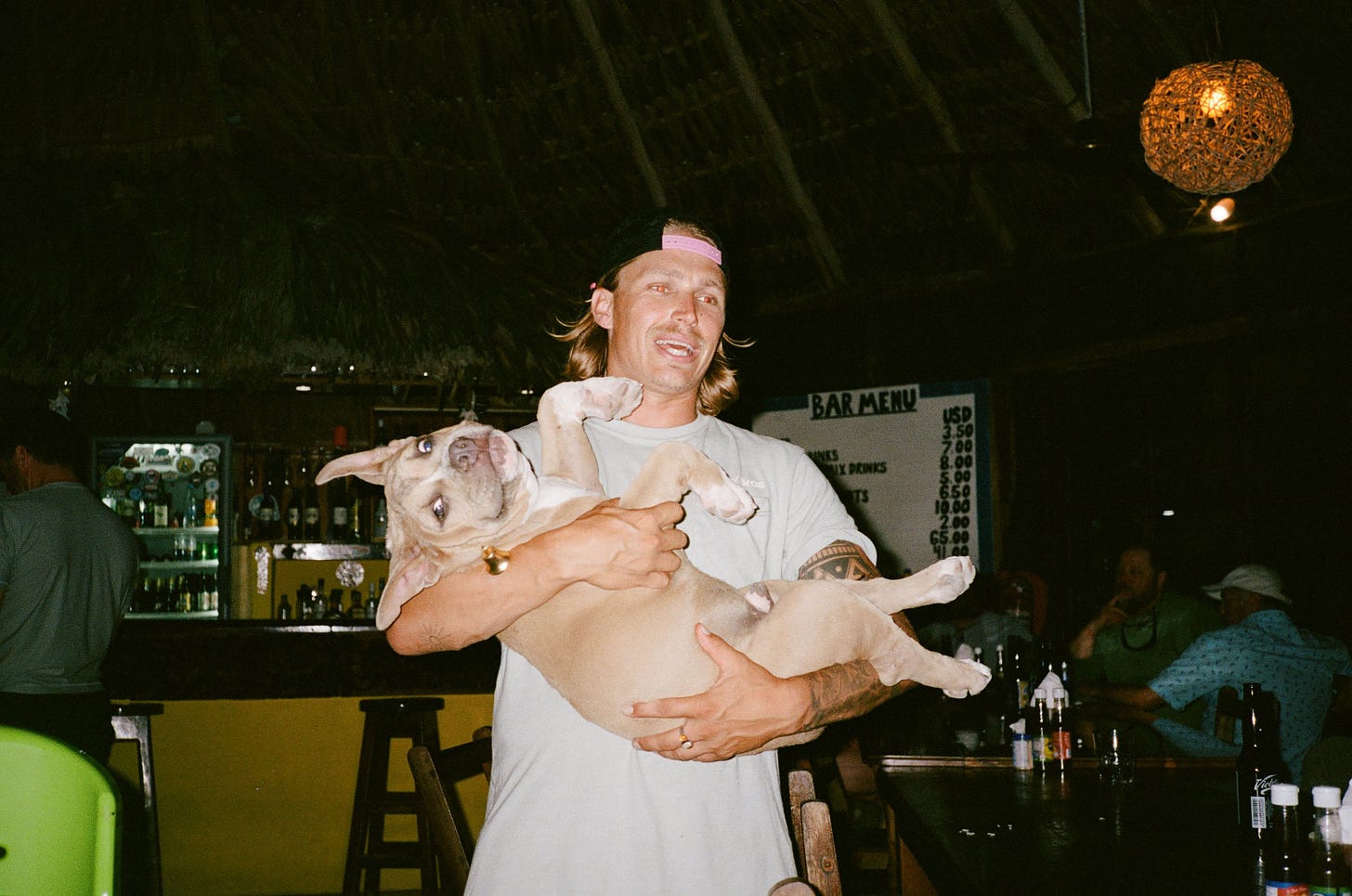
For me, this trip was a lesson in control—learning to control the things I can, and to enjoy being where you are no matter what the scoreboard says. The heat, the frustration, the endless hours with no fish, even the fifth day. You keep going because, maybe, just maybe, you'll have two permit eat dry flies (yes, dry flies) on back-to-back casts and suddenly, in the blink of an eye, you’ve gone from zero to two in 15 minutes - which is what happened to us (I really wish we had a few of Tommy’s floating crabs a few days earlier in the week.)
So even if your headed home without having touched a permit for the day — drink an extra beer on your way home on the panga. Laugh with the guides, get laughed at by them and be ok with it, and accept the fact that you’re not as good of a caster as you think you are. Savor the homemade tortillas and thank the people who made them. There’s always tomorrow—the sun will rise again and the permit will be there. Somewhere. Hopefully. But remember, this game can break you if you let it. And if you stick with it long enough, and if you’re lucky enough, it might break you in the best possible way. And once that happens, you’re f*cked for life, and you won’t want to cast to a dinky trout again for a very long time.

